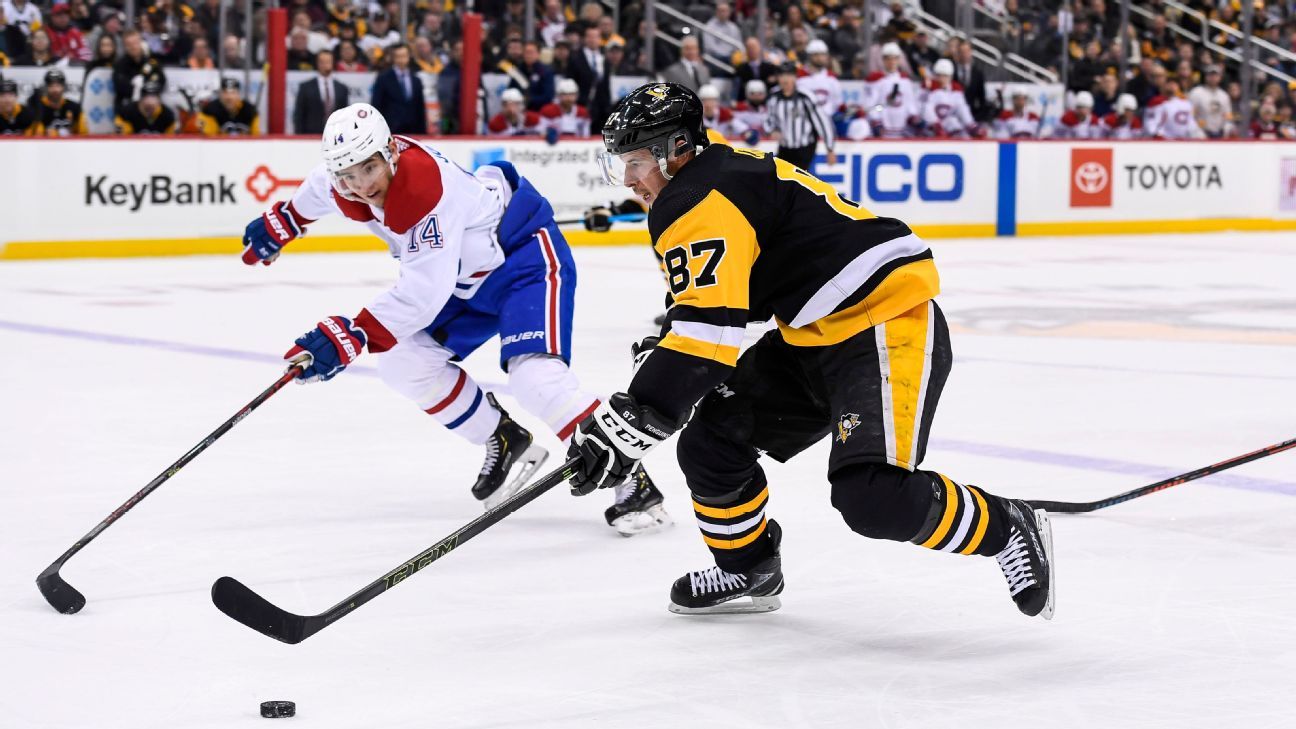
It has been 116 days since the NHL hit the pause button on the 2019-20 season because of the coronavirus pandemic. As the cancellations and postponements around the world of sports continue, there also have been continuous nuggets of new information regarding the potential resumption of the season, the draft, the playoffs and how it all affects 2020-21.
As players, executives and fans continue to adjust to the new normal, we will provide updates every week, answering all the burning questions about the various angles of the NHL's relation to the pandemic. We're getting closer to a return to play on the ice -- and a new CBA that will ensure labor peace for the next several years -- and there have been some intriguing developments on both fronts since last week's update. Get caught up on it all here:
What's the latest timeline for the resumption of the season?
Emily Kaplan: Negotiations between the NHL and NHLPA have been thorough, but on Sunday night, the sides put the finishing touches on a document detailing return-to-play protocols for Phase 3 (training camps) and Phase 4 (the 24-team tournament) that was sent to players and teams. Not only are players going to vote on which hub cities they will go back to -- barring a massive unforeseen change, it's going to be Toronto for the Eastern Conference and Edmonton for the Western Conference -- they're also approving the total return-to-play package, as well as a CBA extension. As of Sunday night, the sides were still finalizing language on the CBA.
It's all going to be lumped into one vote, which should be conducted in the coming days. Once the NHLPA's executive committee (one player rep from each of the 31 teams) gives the package the OK, they'll move it forward to a full membership vote. The NHL's Board of Governors also has to ratify it. After those votes, we'll know the full details of the new CBA. It's possible that the NHL and the NHLPA would announce a memorandum of understanding on the CBA before these votes, saying they still have to be approved by both parties.
If all goes according to plan, training camps for the 24 teams participating in the postseason should open Monday, July 13 (it was originally scheduled for this Friday, but that has moved back). Training camps will occur in each team's playing city. Teams are then expected to travel to the two hub cities on July 25 or July 26. Games are expected to begin Aug. 1, and if the tournament goes as planned, we should be awarding a 2020 Stanley Cup winner in early October. This is all still fluid, but we're getting to the point where the NHL needs to put firm dates on the calendar.
We haven't yet heard of NHL players choosing to opt out. Do we expect any to, and would there be a penalty if they did?
Kaplan: As part of the agreement for a return to play, players are going to be given the ability to opt out of the tournament, with no questions asked. They don't need a reason, and there won't be any recourse. The document states that players have until 5 p.m. ET on Tuesday to notify teams they're opting out, though that date will really be three days after the return-to-play package is ratified.
It's unclear how many players are going to opt out, because to this point, they haven't seen all of the health and safety protocols -- and therefore, have had a hard time visualizing their life "in the bubble" -- but as I've spoken to agents, GMs and players around the league, there's a sense that there could be a handful.
Family members will not be able to join for the first five weeks -- though they will be able to join for the conference finals and Stanley Cup Final -- so that could be a factor for some guys choosing not to play.
As for the fact that the NHL chose Edmonton instead of Las Vegas? I texted with a prominent Western Conference player about that last week. I essentially said, Edmonton isn't exactly Las Vegas, do you think that will be a factor in some guys not wanting to play? He quickly quashed that. "The location of the hub hasn't been a consideration for any of the guys I talked to," the player said. "If we went to Vegas, it's not like guys were really expecting to be able to go play cards at the Cosmo, or whatever. The only reasons guys are going to opt out is for health, personal or family reasons."
At the end of our conversation, he added: "Hockey guys just aren't divas like that."
What will happen to NHL players who opt not to participate in restart?
Emily Kaplan tells Scott Van Pelt that NHL players who don't want to participate in the league's restart can do so without giving the league a reason.
What will bubble life look like?
Kaplan: The NHL is trying to minimize the number of people in the bubble, which they refer to in the document as the "Secure Zone." As noted above, players' families cannot join until the conference finals. Each team has had to submit a list to the NHL of their 52-member traveling party -- which includes a roster of no more than 31 players, three coaches, two athletic trainers, one physician, one equipment manager, one massage therapist, one therapist or chiropractor, one content creator/social media individual, one security representative and one representative to serve as the club's compliance officer. (If teams do not comply with any of the protocols, they could be subject to "significant financial penalties" and potential loss of draft picks.)
According to the document, "all individuals shall maintain physical distancing (a minimum of 6-foot distance) at all times throughout Phase 4, to the extent possible." This includes time on planes and buses, eating at restaurants, and any social circumstances. The league will provide face coverings, though individuals may bring their own, and they must be worn at all times in the secure zones. Players do not need to wear face coverings while exercising, and coaches do not need to wear them while on the bench.
As for what it will look like in Edmonton and Toronto? Expect campus-like setups. Players will be living in single-occupancy hotel rooms, with no roommates. Housekeeping will come every third day. The NHL is focused on bringing in entertainment so that players don't go stir crazy, but it doesn't sound quite as lavish as the NBA's plan. Some details I've heard so far: setting up food trucks, outdoor movie screenings, as well as secured golf course outings.
The document outlines several dining options for players: hotel restaurants and bars in the "secure zone," contactless room service delivery, and contactless delivery from local restaurants with a secure drop-off location. Players also may eat in designated meeting rooms with "modified buffet-style meals" by caterers, which are subject to plexiglass barriers between servers and individuals.
According to the document "the hotel pool, if open, is permitted for use by all individuals at the Secure Zone Hotel, so long as individuals can socially distance, both in and out of the pool." However, the hotel spa, steam room and sauna will be closed for everyone.
What happens if a player or someone working for an NHL team tests positive for COVID-19 in Phase 3 or Phase 4?
Greg Wyshynski: Anyone who develops symptoms, or is living with someone who develops symptoms and/or tests positive for COVID-19 during Phase 3, must immediately notify their team, self-isolate and get tested by the team's physicians. If they test positive, the person can return to the facilities if they've tested negative twice on the basis of CDC Test-Based Strategy after their fever breaks and they have improved respiratory symptoms; or if they have no fever or respiratory symptoms for 72 hours if that person has self-isolated for a minimum of 10 days.
Symptomatic players must refrain from exercise for at least 14 days after the first positive test, and have to get approval from a cardiologist and team physician before returning to game activity.
If the person testing positive is asymptomatic, there's a "confirmatory" second test; if that's positive, they must isolate until they're cleared to return to team facilities. That clearance can be gained through "at least two consecutive, respiratory specimens, nasopharyngeal where feasible" that are collected 24 hours or more apart and test negative; or "upon the passage of 10 days since the first positive test, providing the person has remained asymptomatic during the entire period of their self-isolation."
Teams also are going to conduct contact tracing after positive tests, as any person who has been in contact with the individual "for 15 minutes or longer at 6 feet or less" in the 48 hours leading up to the positive test must be tested themselves.
Phase 4 features similar positive test protocols for symptomatic and asymptomatic individuals as Phase 3, but expands the scope of testing into five different groups:
Group 1: "Persons who are the core playing group, and those persons essential to support the core playing group," such as players, team staff, officials, NHL and NHLPA staff. They're both tested and temperature/symptom checked daily.
Group 2: "Persons with key business functions with no or short duration contact with Group 1 participants," such as off-ice officials and some hotel staff. They're both tested and temperature/symptom checked daily.
Group 3: "Persons with the potential for repeated short duration contact with Groups 1 & 2 participants," such as hotel food service staff, security and ice crew workers. They're both tested and temperature/symptom checked daily.
Group 4: "Persons with very limited or short duration exposure to Group 1, 2, and 3 participants," such as arena game operations staff, hotel housekeeping and transportation staff. They're both tested and temperature/symptom checked daily.
Group 5: "Persons with no exposure to other Groups," such as the fire marshal and working media. They're not tested, but are temperature and symptom checked daily.
Who facilitates these tests? Each team will name a compliance officer, who must be a senior member of their traveling group with compliance experience. They will "certify, in writing, by 10 p.m. local time each day, to the League Facility Hygiene Officer, that all members of the Club's Traveling Party remain compliant with all necessary aspects of the Phase 4 Protocol. They also report any noncompliance, and how it will be remedied."
Once you're in the bubble, there's no opting out of these tests.Those who refuse to follow their testing and monitoring requirements "will be prohibited from participating in their job functions in Phase 4. Such individuals will be prohibited from participation in any Club activity, and may be subject to permanent removal from the Phase 4 Secure Zone if they persist in their refusal."
Will the NHL and the NHLPA release information about players who test positive and have to miss postseason games?
Wyshynski: No. According to the return-to-play protocol, "Absent prior approval by the League (who shall consult with the NHLPA), there shall be no disclosure by the Club to the media or to the public of information relating to a Player's positive test result or to a Player developing COVID-19 symptoms during Phase 4."
Public sentiment in the run-up to "return to play" has been against naming players who test positive for COVID-19, honoring their privacy in these unprecedented times. Does the sentiment change as these players enter Phase 4 and begin inexplicably missing games? Or if it appears the league is concealing test results to portray a more secure bubble?
Moving over to the collective bargaining agreement, is it true NHL players could return to the Olympics as part of this new CBA?
Kaplan: There is language in the CBA memorandum of understanding that says NHL players can go to the 2022 Olympics in Beijing and 2026 Olympics in Milan (pending IOC approval) and I cannot understate what a massive win this is for the players, and also what a total surprise this is.
I'll put it this way, if you talk to NHL players and ask them what their two biggest gripes with the league are, nine times out of 10 you'll get one of these two answers: escrow and Olympic participation. I've also sat in on pretty much every Gary Bettman and Bill Daly media scrum over the past three years -- at GM meetings, Board of Governors meetings, Stanley Cup playoffs, All-Star Games, etc. -- and when asked about the Olympics, they have each maintained a hard-line stance that the NHL had no regrets about skipping PyeongChang in 2018, and gave no hints that the landscape could change anytime soon. Bettman and Daly asserted that it didn't behoove the NHL to pause its season for the Olympics, and risk players getting injured in non-NHL competition. They also said the cost of insurance and lack of marketing benefits just didn't make it worth it for the NHL.
So for them to reverse course -- in the middle of a global pandemic, no less -- feels stunning. What it came down to is this: The players and the league re-entered CBA negotiations during the pandemic, and in any negotiation, there's give and take. The league was unwilling to do an entire overhaul of their financial structure, meaning escrow wouldn't go away completely (though there are some improvements for players), but they were willing to budge on the Olympics as a sweetener.
My personal take: All along, while NHL leaders said they didn't see the benefit of going to the Olympics, they knew that was a narrow view. Broadly, the sport needs visibility. China is a market the NHL has been trying to cultivate for some time, so the fact the next Games are in Beijing makes sense for the league. So that's why they were willing to budge.
One additional note: This Olympic participation is not part of a larger international calendar of events in the new CBA. While that's something the NHL had been after for a while in relation to Olympic participation, the sides just didn't have enough time to hammer it out. Expect the conversations to continue on this issue following the players' vote.
So what's going on with escrow?
Wyshynski: The players have consistently cited escrow withholdings, the percentage of their salaries withheld in case there's an uneven 50-50 revenue split between themselves and the owners, as their primary financial concern in the next CBA. Escrow has taken on extra prominence after the 2019-20 season was paused because of COVID-19, with a postseason that won't have any revenues generated from fans in the buildings. As CBA talks continued, there was one pressing question: How would the players make up for that revenue imbalance?
As we previously reported, the escrow percentage in 2020-21 will be capped at 20% for Year 1 of the new CBA. It's expected that the withholdings would be made available to the owners during the season, rather than waiting until after the season to slice up the pie. In 2021-22, escrow would be capped somewhere between 14-18%, with the final number determined by the previous season's revenues. Escrow would then be capped at 10% in 2023-24, and then at 6% from 2024-26. In the event that there's a seventh year on the deal -- which would be triggered if the players' escrow debt is $125 million or more after six seasons -- the escrow rate would be set at 9%.
(For a point of comparison, escrow withholding for 2018-19 was 12.9%, with 3.25% returned to players. The official escrow loss for the players that season was 9.65%.)
Another part of this equation is a one-time 10% salary deferral by the players next season. That money would be exempt from the 20% withholding, and paid back over the course of three seasons beginning in 2022-23.
While this doesn't "get rid of escrow," perhaps it comes closer to "fixing" escrow, which is something that players such as Artemi Panarin argued must happen before players returned to complete the season.
What will the salary cap look like moving forward?
Wyshynski: The salary cap for the 2020-21 season will be set at $81.5 million. It will remain there until league hockey-related revenues reach $4.8 billion, which was the amount projected for this season before it was paused. Once that happens, the upper limit of the salary cap would be calculated through a new equation in this CBA, using the hockey-related revenue from two seasons earlier as a determining factor.
Multiple sources have indicated in the past few weeks that we could expect to see a "frozen" salary cap at $81.5 million for the next two seasons, given the economic uncertainty surrounding revenues for the 2020-21 season. But it's expected that with a new U.S. broadcast rights contract and the expected revenue windfall from the Seattle expansion team, returning hockey-related revenue to previous levels is attainable.
What are other highlights of the new CBA?
Wyshynski: A few other nuggets confirmed by sources, beyond the salary cap, escrow and Olympic participation:
Playoff bonus shares are increasing. The overall pot this season is $32 million, doubling from last season's $16 million. The pot is set at $20 million next postseason. The percentage shares for players during this non-traditional playoff tournament had yet to be determined.
The NHL and the players were able to agree on an increase of their minimum wage. That salary rises from $700,000 to $750,000 next season, and will reach $800,000 by the sixth year of the CBA.
No-move and no-trade clauses are now portable with players, no matter what the team acquiring them wants. Previously, those teams had to agree to keep the clauses intact if they hadn't been triggered.
The "35-and-older" rule will be tweaked. If a player 35 years old or older signs a multiyear deal that is flat or ascending in value, there will be no cap hit left on the books if they retire before the deal is up. This was a smart fix to an unfortunate byproduct from a rule intended to penalize cap circumvention.
Finally, here's an interesting one: No more conditional picks being traded that are contingent on a player re-signing with the team that acquired him. These picks were famously attached to trades for Erik Karlsson, Matt Duchene and Taylor Hall in recent years. The players and the agents felt that it makes it tougher for a player to sign an extension with the team that acquired them if there's a conditional pick in play.
And finally, what's your latest pop culture addiction this week?
Kaplan: Over the past few months, I've committed to becoming an English Premier League fan and settled on being a Chelsea supporter -- mostly because they have a young American star, and I knew a lot of their games would have prime NBC Sports broadcasts so they'd be easier to follow. So this week, Christian Pulisic is my pop culture addiction. He was an absolute force in Saturday's match against Watford, easily the best player on the pitch (look at all of my authentic football language!). I love what Men in Blazers' Roger Bennett tweeted about Pulisic afterward: "His quick feet, ability to attack crevices of space and surging confidence make him Chelsea's most important player right now. First time an American has played that role on a Premier League team in the 244-year history of our Nation." What a July 4 treat indeed!
Wyshynski: I binged "Crazy Delicious" on Netflix, which is a cooking competition from the U.K. that certainly captures the spirit of the original "Iron Chef." Three contestants make elaborate dishes to appease three "food gods," and it's just silly fun. And like the rest of humanity (based on my social media feeds), I watched "Hamilton" on Disney+ over the weekend. I had the honor of seeing it twice, including once from the second row (!), but never saw it with the original cast intact. I'll say this: Whoever took on Aaron Burr after Leslie Odom Jr. owned that role was a brave, brave man. (Although I heard that Wayne Brady's version in the Chicago troupe was really good.)


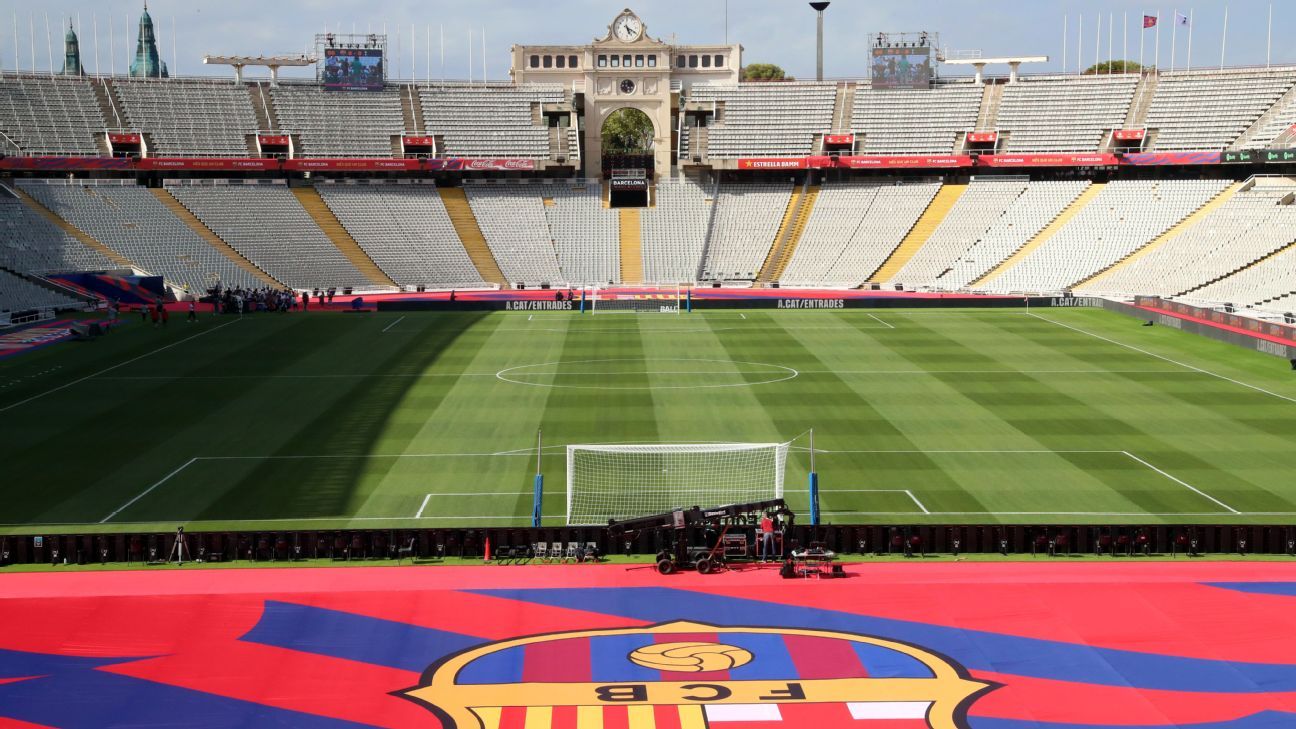






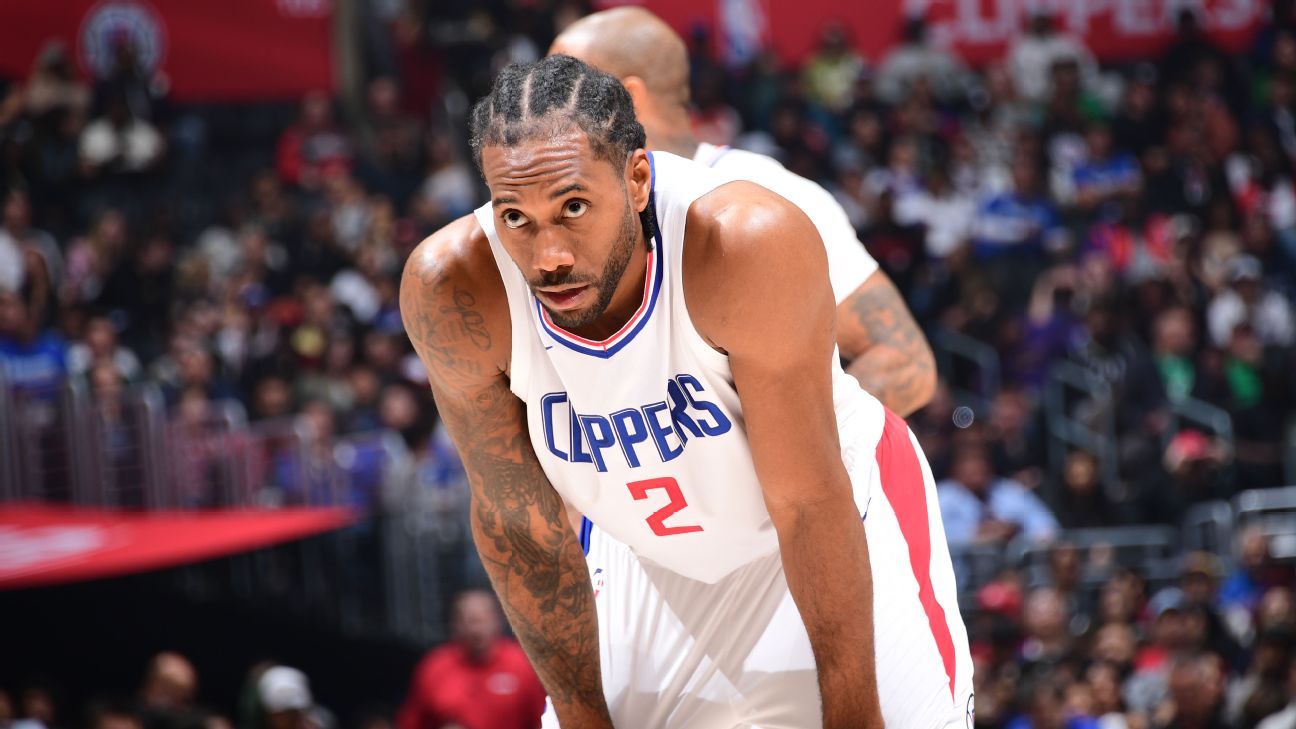
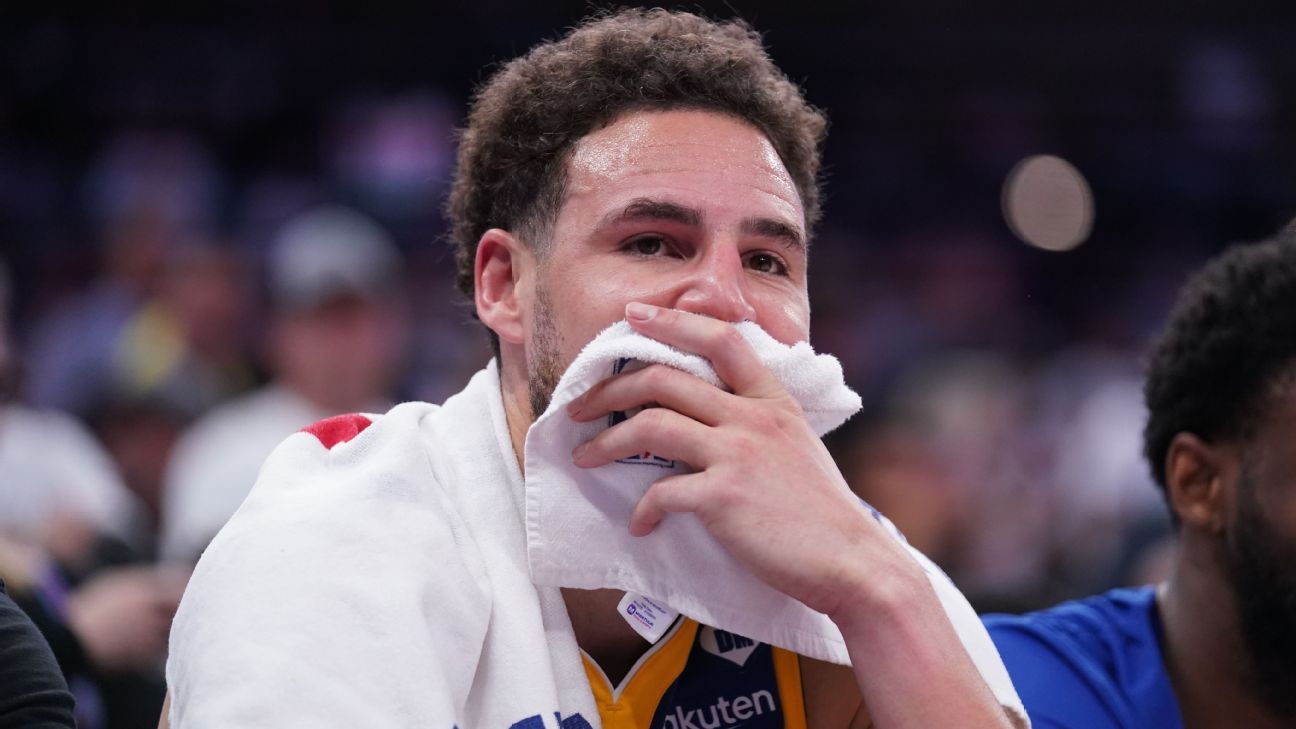
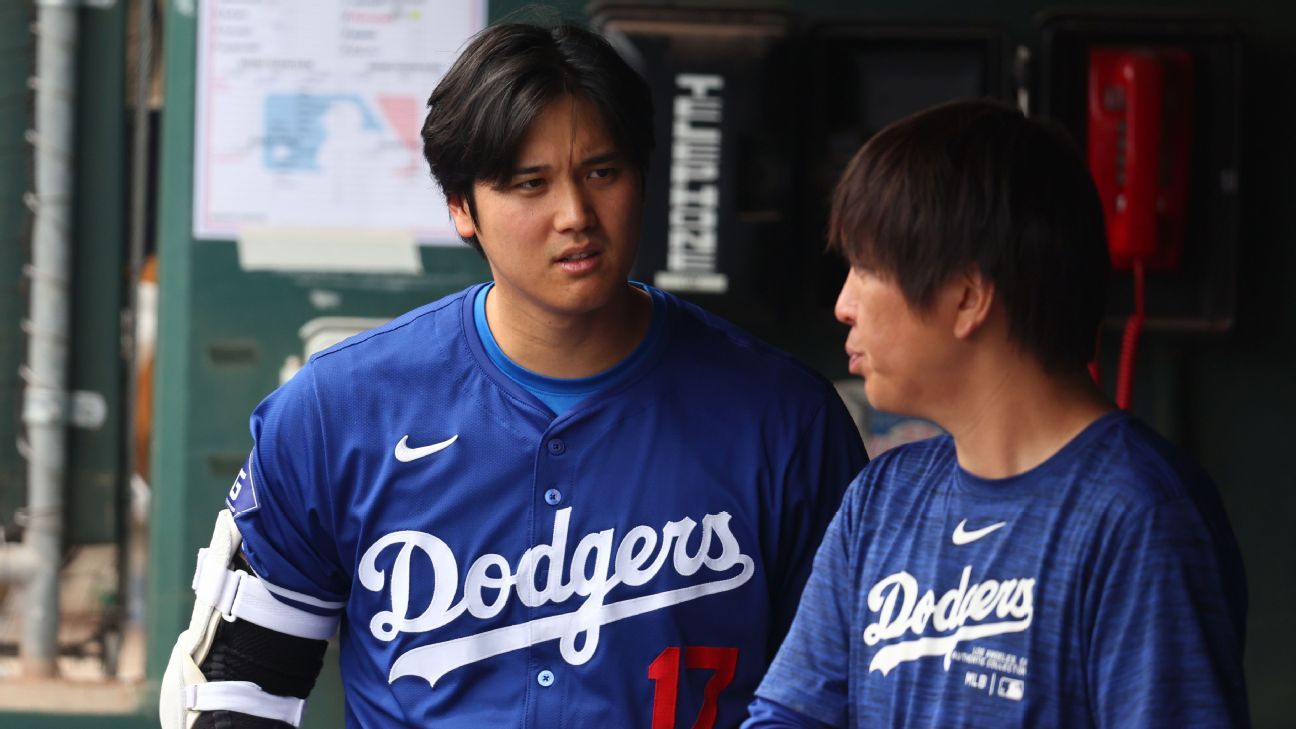
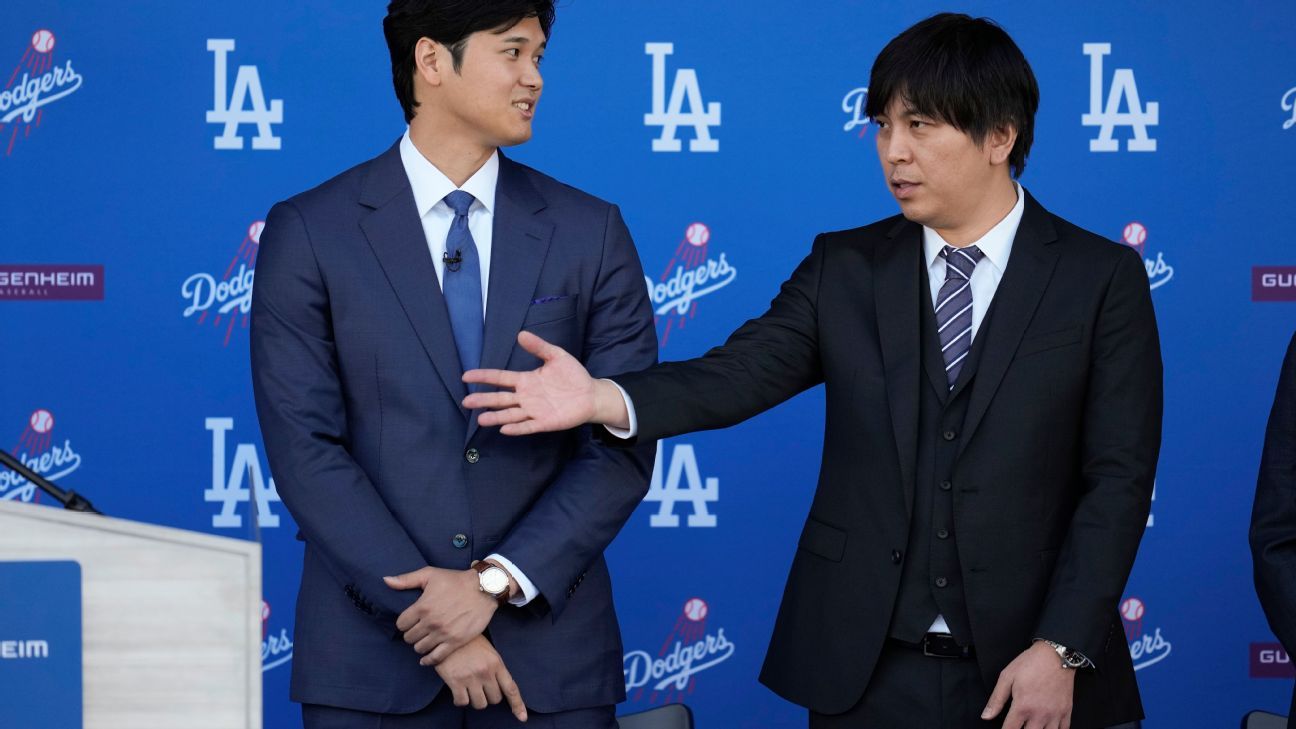

 Phone: (800) 737. 6040
Phone: (800) 737. 6040 Fax: (800) 825 5558
Fax: (800) 825 5558 Website:
Website:  Email:
Email: 






